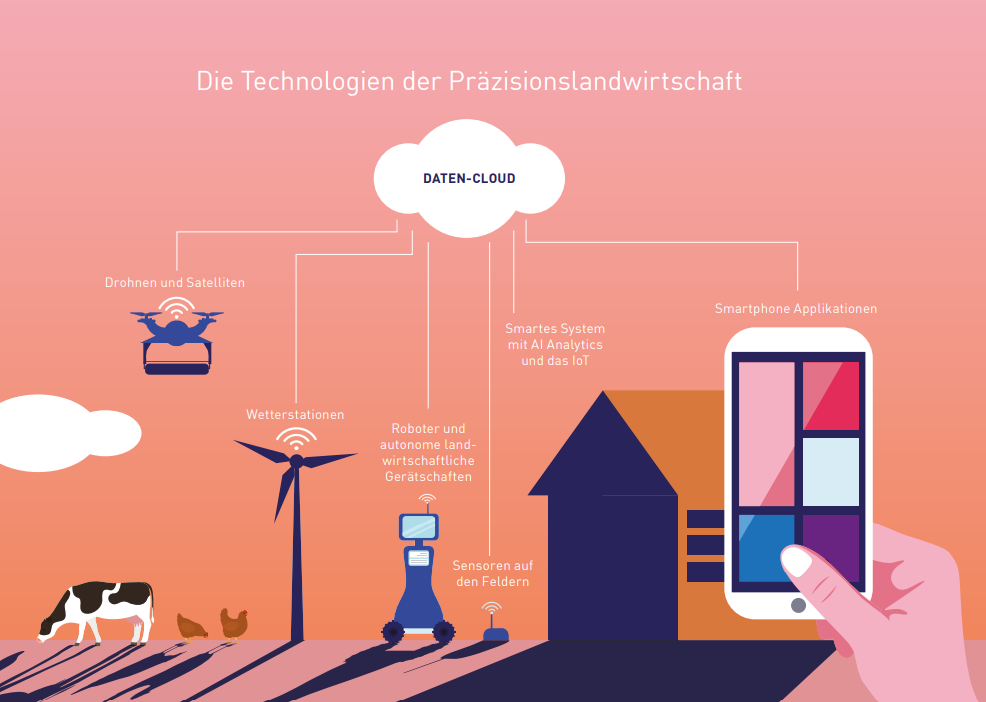How and what we eat affects not only our individual health but also that of our environment. After all, our global food system is a major contributor to global warming. Food production is responsible for one third of greenhouse gas emissions, consumes 70 per cent of extracted fresh water and takes up half of all habitable land. Our food system has been exceeding the limits of sustainability for a long time and is destroying the planet. Statistics on the nine planetary boundaries, Earth Overshoot Day, climate change, biodiversity loss, animal suffering and malnutrition and its health consequences are alarming. All the data point unequivocally to the fact that our eating habits are among the greatest threats to people and the environment.
From production to processing and from distribution to retail – new ideas for solutions are emerging everywhere. Those who recognise these developments first and move forward courageously today will be the winners tomorrow..

For example: Precision agriculture
What is it about?
Precision agriculture uses technology to optimise crop and livestock production. Data from satellites, drones and sensors is used to gather important information about soil, climate and plant growth. This data is then analysed by computer-assisted systems. This allows farmers to decide precisely and quickly how to fertilise, irrigate and control pests. This data-driven approach makes farming more efficient, saves fertiliser and water.
Who? Initiatives & innovations
The IBM Watson Decision Platform for Agriculture creates an electric field record (EFR) for each farm. The EFR collects data on weather, soil, equipment, farming practices and workflows. The platform analyses this EFR data using AI and machine learning to generate guidance on how to make more intelligent decisions. A dashboard makes it easy for farmers to visualise a variety of data, gives an overview of weather forecasts, soil conditions, evaporation rates and warns of growing crop stress.
Why bother? Opportunities for transformation
Precision agriculture minimises the negative impact of agriculture on the environment. It enables farmers to respond better to changing weather patterns and more easily reduce the risk of crop failure or yield loss. A US study shows that consistent use of precision agriculture technologies can increase productivity by 4 percent and fertiliser efficiency by 7 percent. On average, herbicide and pesticide use is reduced by 9 percent, fossil fuels by 6 percent, and water consumption by 4 percent. Precision agriculture is the basis for further automation and the use of robotics. By optimising production and reducing input costs, farmers can increase their profitability and make farming more sustainable. New jobs are also being created in this tech-oriented agricultural sector.
Learn more about the transformation opportunities of the food system and download the European Food Trends Report 2023 free of charge on our website.